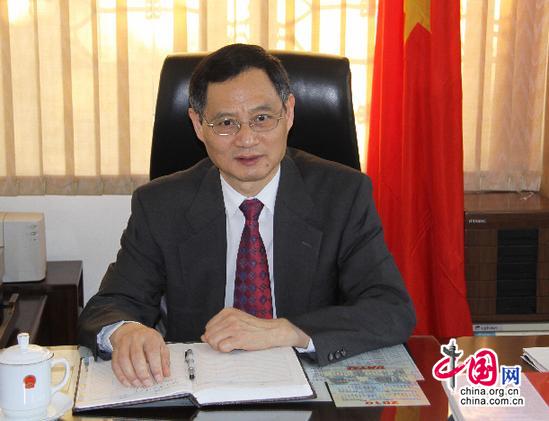Ambassador Zhang Yan relives China-India relations
To mark 60 years of diplomatic ties with India, "The Year of India" in China and "The Year of China" in India will be held. In an interview with Zhang Yan, the Chinese ambassador to India, we relived the progress of Sino-Indian relations, reviewed the two countries' roles in international issues, and looked to the future of such relations.
|
|
|
Chinese ambassador to India Zhang Yan [file photo] |
China.org.cn: You assumed the post of Chinese ambassador to India in December 2007. Now, would you like to share with us your impression of India? Is it a different country from what you once knew, and how?
Zhang Yan: As an ancient country with a splendid civilization, India is also an emerging power that braces the world with vitality, and its diversity impresses me most. Many diplomats who were about to leave the country felt that they still didn't know much about the country, and there were many things that needed exploration. As the Chinese ambassador to India, I realize that China and India, with a longstanding friendship, have a lot in common, and many Indian people have good feelings for China and more are eager to understand China.
China.org.cn: The past 60 years have witnessed twists and turns for the Sino-Indian relations. What are the crucial problems that hinder good relations? What are the deep reasons? Can the problems be avoided, and how?
Zhang Yan: Sino-Indian relations have been generally good in the past years. Like any kind of relations, frictions and disputes are inevitable. The deep-rooted problem for the Sino-Indian relations is that even though we are neighbors, our mutual understanding and mutual trust need to be strengthened. And some historical problems, like the Sino-Indian border issue, haven't been solved yet. In my opinion, both countries should work together and find every effective way to reinforce the understanding and trust between Indian and Chinese people. After all, a friendly atmosphere will be favorable for the proper settlement of problems.
China.org.cn: We've seen frictions occur in succession in the latter half of 2009, and divergences still exist in the border issue and Tibet issue. What did China and India do to ease these disputes?
Zhang Yan: In latter half of 2009, some media ballyhooed about the sensitive issues and thus disrupted the normal development of Sino-Indian relations. It is acknowledged that there are some historical problems hindering the course of the relations. To properly handle the border issue, China and India established dialogue, and 13 rounds of positive talks have been held. Both parties agreed to give top priority to maintaining peace and stability in the border area before its final solution and to not allow it to block the development of the bilateral relations. The joint efforts did take effect – the general situation in the border area is peaceful and stable, not as "tense" as some media had reported. As for the Tibet issue, the Indian government has reiterated its admission that the Tibet Autonomous Region is a part of the People's Republic of China and promised it will never allow the Dalai Lama to undertake anti-China activities within the Indian territory. China hopes India can scrupulously abide by its promise and slash any of the Dalai Lama and his followers' words and actions that may harm China's interests and undermine the Sino-Indian relations.
 0
0 








Go to Forum >>0 Comments